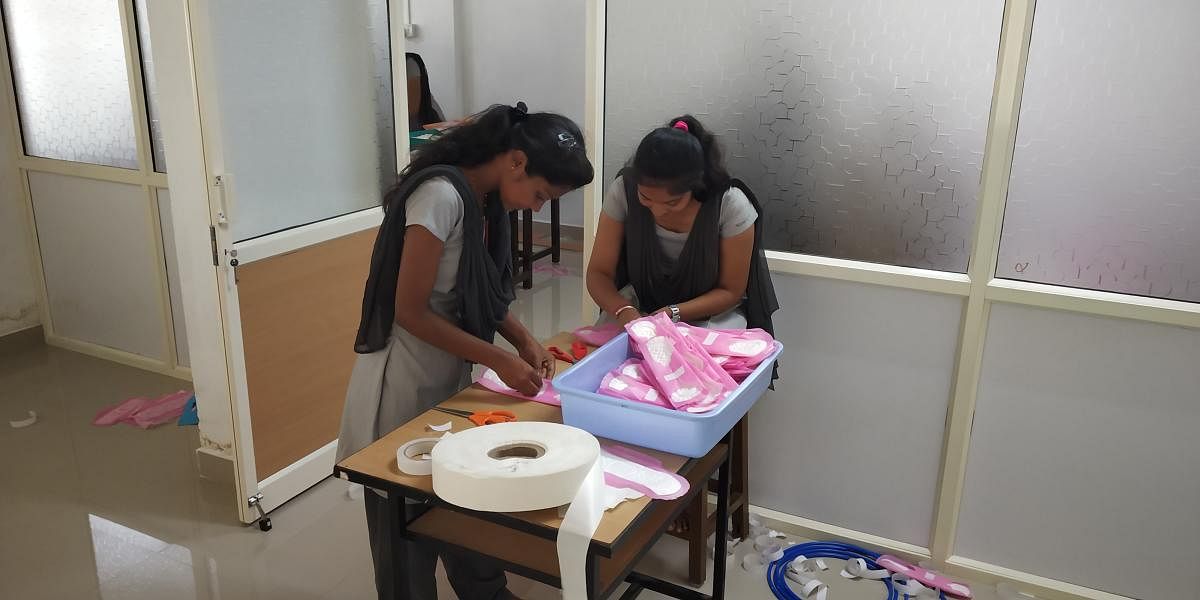Menstrual health gets a boost



Menstrual health suffers due to taboo as well as lack of access to affordable sanitary pads. And the environment suffers because the commercially produced pads contain material that’s incompatible with nature. To keep away from the double whammy, the SDM Institute of Technology (SDMIT) and SDMES Students Cooperative society, Ujire, Dakshina Kannada have started the ‘Raksha’ sanitary napkin production unit.
This has been a dream project of philanthropist Hemavathi Heggade, a proponent of rural development and women empowerment.
The groundwork to manufacture user-friendly and biodegradable napkins was started in 2018 by the Department of Civil Engineering, SDMIT. The team comprised Priscilla, Vinay Shyam and Vijin Xavier. They visited Coimbatore in Tamil Nadu to meet Arunachalam Muruganantham, the ‘Padman of India’ and his plant, and came back with the know-how of pad-making. But these pad people wished to improvise the product.
So, the team visited Shehnaz Enterprises at Udaipur, Rajasthan, makers of sanitary napkin-making machines and raw material. The team’s idea solidified.
Work begins
The institute bought a machine worth Rs 2.38 lakh. Priscilla and the spouses of Vijin and Vinay became subjects of this experiment.
“We took 10 trials to make a good one. We found out its drawback, retested it, and only then finalised the product based on the standards,” says Priscilla. “Nearly 50 pads were distributed to women across professions. We wanted to test how they fared with women who undertook different levels of physical strain. The feedback was satisfactory; a few suggestions were considered, and then the pad was sent to the Bureau of Indian Standards. ‘Raksha’ is now certified as a low-cost and biodegradable product,” says Prescilla.
“For absorption, we use gel sheets, wood pulp and sap sheets made from neem tree. The lower cover is made of plant-based plastic derived from plant starch,” says Vinay Shyam.
‘Raksha’ hopes to promote menstrual hygiene in rural areas of Belthangady taluk. So, the awareness team, headed by Dr Rajatha, librarian at SDMIT, met women in the villages.
“Most of them used unhealthy absorbents before. The students and doctors of our team convinced them to switch to the sanitary napkins,” says Rajatha.
The marketing team accompanies the awareness team and distributes the sanitary napkins. When there is demand, these teams deliver the napkins in bulk to women self-help groups and government schools.
In numbers
The Raksha unit has produced 4,000 packs since its inception in May 2019. The unit has appointed two women to produce napkins, with a daily target of 50 packets. The students of SDMIT volunteer at the unit after class hours. Currently, the production cost of a napkin is Rs 4 and 20 paise. A packet with six pads is sold at Rs 12 in rural areas.
Deccan Herald is on WhatsApp Channels| Join now for Breaking News & Editor's Picks